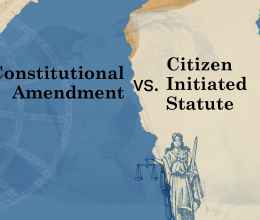The ACLU of Ohio has been fighting “prisons for profit” for years. The trend to privatize prisons as a method to reduce costs has been ineffective, and only contributes to the surging rates of mass incarceration, with Ohio prisons at 130% of capacity.
During the last months of the Obama administration, Deputy Attorney General Sally Yates announced that federal private prisons would be phased out. A slow but satisfactory win, this policy shift brought national attention to the horrific conditions inside the walls of prisons for profit. On February 23, 2017, Attorney General Jeff Sessions reversed this decision.
Private prisons aren’t the only stain on Jeff Sessions’ record.
In 1986, the Senate rejected Sessions from the federal bench because of his unrelenting prosecution of three black activists. Coretta Scott King wrote to Senator Strom Thurmond, then-chairman of the Committee on the Judiciary, opposing the appointment. The letter has recirculated in the past months, even being read by Elizabeth Warren on the Senate floor on February 8, 2017.
Sessions’ move to overhaul the Justice Department’s policy is not surprising. The GEO Group, a private prison company, gave $275,000 to President Trump’s Rebuilding America super PAC, despite regulations which forbid government contractors from making campaign donations. Now they can cash in their favors.
Under President Trump, the private prison industry will continue to grow, and investors know it. In the months since Donald Trump was elected, CoreCivic (formerly Corrections Corporation of America) and the GEO Group have doubled.
Sessions has been a supporter of for-profit prisons in his home state of Alabama and on the Senate floor, despite significant evidence that private prisons create more dangerous environments for staff and prisoners while corporations line their pockets.
On March 2, 2017, after reinstating federal use of private prisons, the ACLU called for an investigation of whether the attorney general perjured himself during his confirmation hearing. In that hearing, stated that he “did not have any communications with the Russians.” Later, he was found to have met with the Russian Ambassador Sergey Kislyak several times during the 2016 presidential campaign.
Ohio has been at the vanguard of the prisons-for-profit movement. In 2011, we became the first state to sell a prison to a private company when the Lake Erie Correctional Institution was purchased by CoreCivic. Unfortunately, we are continuing down this troubled path, with a second prison slated for sale.
CoreCivic also operates a federal prison in Youngstown, Ohio―the Northeast Ohio Correctional Center (NEOCC). CoreCivic recently contracted with the U.S. Immigration Customs and Enforcement (ICE) for hundreds of beds in NEOCC. Immigrants detained by ICE can now be held in NEOCC before hearings, which overwhelming lead to deportation. Compounded with President Trump’s recent executive orders, which increase border enforcement, deportation, and profiling, undocumented immigrants will surely be the individuals filling up beds at NEOCC and in private prisons across America.
The ACLU of Ohio will continue to oppose prisons for profit at every turn. No person should be treated like a product for sale.









